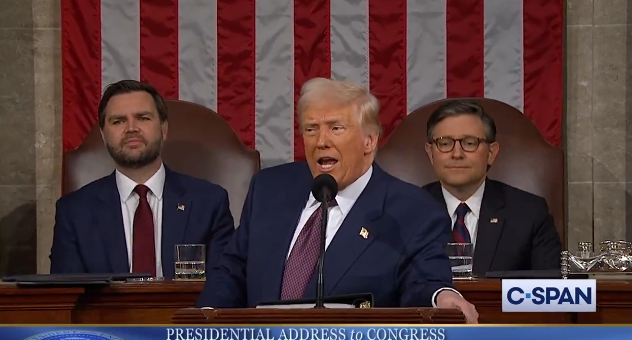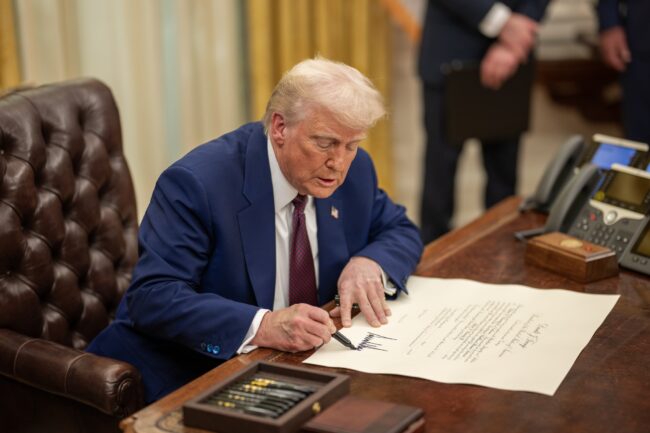Senate Republicans work into early hours to pass Trump Tax Cuts

Senate Republicans plowed ahead with their plans for trillions of dollars in tax-cut extensions and new breaks, completing a crucial budget vote to advance President Trump’s legislative agenda just after his tariffs triggered a sharp downturn on Wall Street.
Lawmakers voted 51-48 early Saturday morning to adopt a fiscal framework for Trump’s tax reductions and proposed new spending on border security and the military.
Senators Rand Paul from Kentucky and Susan Collins from Maine were the only Republicans to vote against the budget. This brings Republicans one step closer to finalizing a sweeping multi-trillion dollar plan to address defense, energy, immigration and tax policy.
“This resolution is the first step toward a final bill to make permanent the tax relief we implemented in 2017 and deliver a transformational investment in our border, national, and energy security,” said Senate Majority Leader John Thune, R-S.D., ahead of the vote.
Republicans in the House and Senate need to pass identical versions of a budget resolution in order to get access to reconciliation, a feature of the budget process that allows them to pass other policies and avoid a filibuster by Senate Democrats.
One of the biggest differences between the Senate plan and the House plan is how to pay for tax cuts. The bill directs both chambers to cut the deficit through spending cuts. While the Senate spending cuts are set at just around $4 billion, the House intends to cut at least $1.5 trillion.
To avoid a catastrophic financial default this summer, the Senate plan would raise the U.S. debt limit by $5 trillion. Without an increase, the government would be unable to issue new debt, which means it wouldn’t have money to pay its bills, including the interest it owes to bondholders.
While Republicans in both chambers are largely in line on their hopes to get a plan to President Trump’s desk in the coming weeks, in contrast to the Democrats not having a coherent identity and plan, their razor thin margins threaten their ambitious agenda with lots of moving parts.


